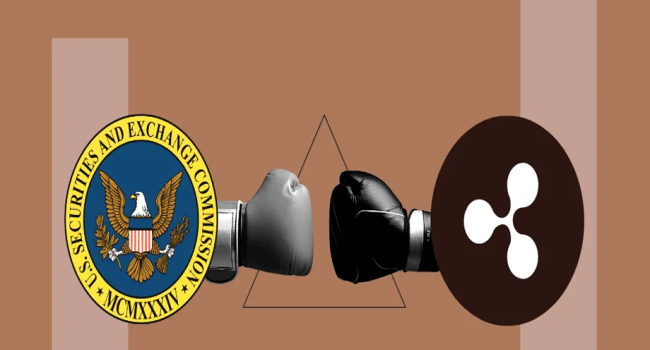
Digital currencies are not securities: US court makes revolutionary decision in Securities and Exchange Commission vs. Ripple lawsuit
The US District Court for the Southern District of New York on Thursday ruled in favor of Ripple Labs in a 2020 lawsuit filed against the company by the US Securities and Exchange Commission (SEC).
According to the decision, the software sale and other redistributions of the XRP token issued by Ripple Labs are not the issuance and sale of securities.
"XRP, as a digital token, is not in and of itself a “contract, transaction[,] or scheme” that embodies the Howey requirements of an investment contract," the ruling said.
On the other hand, the court upheld SEC's appeal regarding corporate sales of the XRP token, considering that the company, by selling its cryptocurrency to large companies, violated US securities laws.
In 2020, SEC filed a lawsuit against Ripple Labs and its founders, CEO Brad Garlinghouse and co-founder Chris Larsen. In the lawsuit, the SEC alleged that Ripple conducted an unregistered securities distribution by selling its digital asset, the XRP, to investors. SEC argued that XRP should be classified as a security and that Ripple should have registered it as such with the SEC.
"We said in Dec 2020 that we were on the right side of the law, and will be on the right side of history. Thankful to everyone who helped us get to today’s decision – one that is for all crypto innovation in the US. More to come," Brad Garlinghouse wrote on Twitter.
The court's decision has caused great excitement in the cryptocurrency market. The price of XRP increased by 68%, BTC—by 3%, and ETH—by 6% in just a few hours.
Cameron Winklevoss, the CEO of the famous cryptocurrency exchange Gemini, commenting on the court's decision, stated that it establishes that, “The sale of XRP on exchanges is not a security. Which means the sales of all cryptos on exchanges are not securities and SEC and [its chairperson] Gary Gensler have no jurisdiction over them.” Thus, the powers of the US regulatory body extend only to classic financial organizations.
- Related News
- How will new technologies change future of finance? Interview with director of Apricot Capital (video)
- What risks do crypto and digital currencies pose? Interview with Rasmus Nielsen
- Binance CEO will plead guilty to all charges and will resign; Binance will pay a $4.3 billion fine
- Binance fully exits Russian market: Local operations sold to another company
- Telegram integrates TON Space cryptocurrency wallet: To whom will it be available?
- Ethereum creator's account on X is hacked, damage is $700,000
- Most read
month
week
day
- 10 most interesting architectural works of Zaha Hadid 748
- How will new technologies change future of finance? Interview with director of Apricot Capital (video) 745
- 5 original buildings with curious optical illusions (photos) 740
- What risks do crypto and digital currencies pose? Interview with Rasmus Nielsen 707
- 4 flares erupted from Sun in rare event: the Earth may be hit by geomagnetic storm (video) 632
- Google is developing a budget smartwatch 629
- Alphabet will pay dividends for the first time in its history 626
- Date of new Apple presentation known: When will they show us new iPad Pro with OLED screen? 618
- Large taxpayers of Armenia’s IT sector: What changes have taken place in 2024 Q1? 613
- Mutated bacteria resistant to drugs found on the ISS: What does this mean and why is it a problem? 612
- Archive
